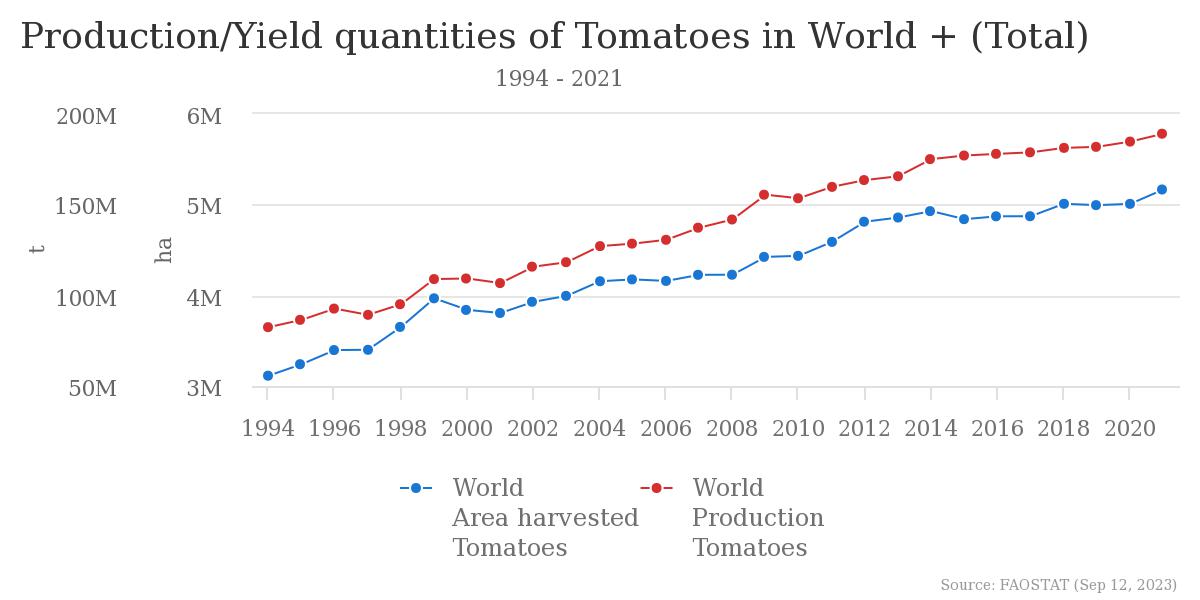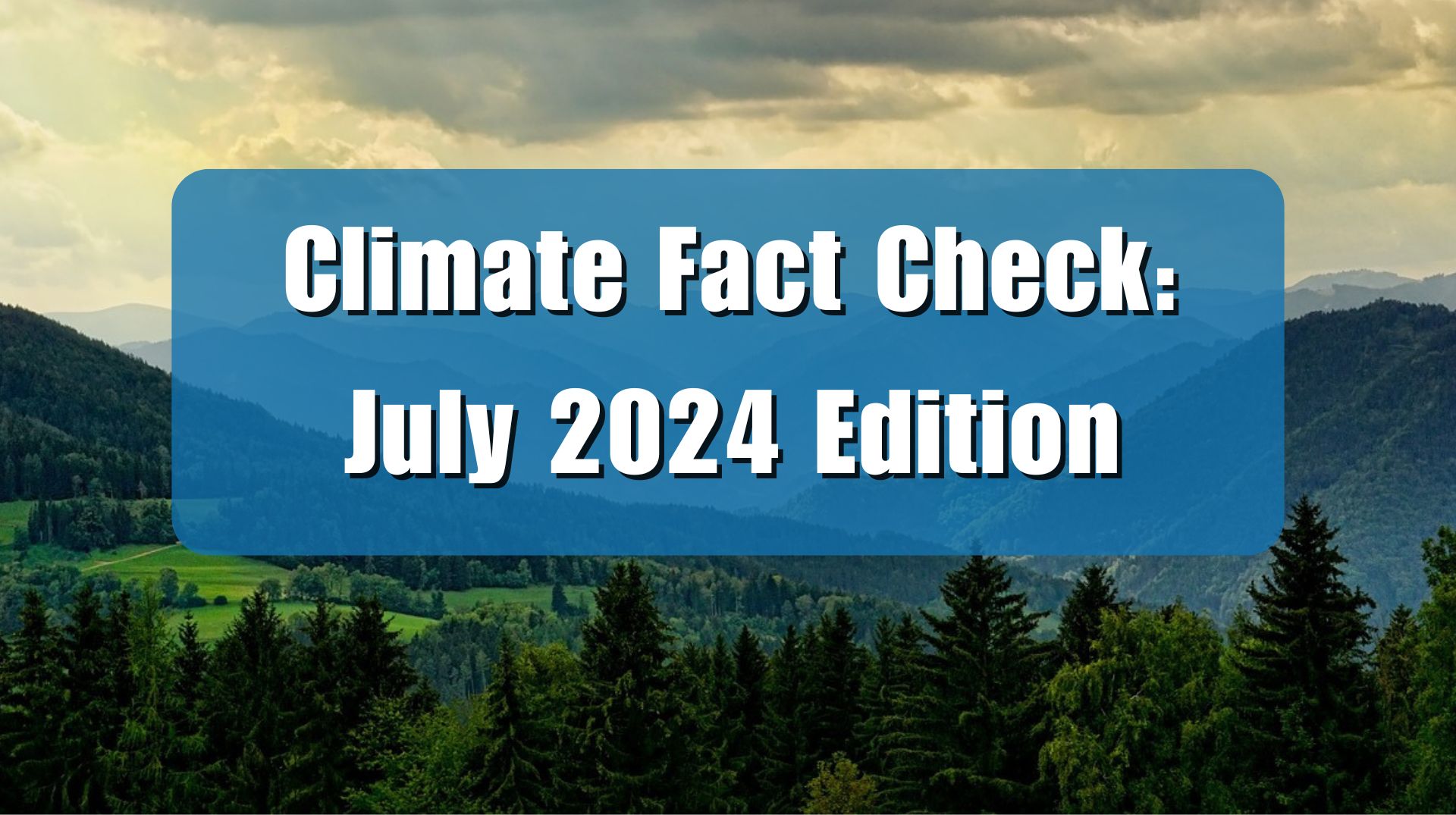This morning, the MSN news feed that displays for millions of people when they open a new Internet tab prominently displayed an article titled, “The climate crisis is here, the ecosystem is starting to collapse.” Embedded in the usual debunked claims of worsening extreme weather were claims that climate change is devastating crop production around the world. In particular, the article singled out rice, sugar, and tomato production as particularly ravaged by climate change. The objective facts, however, show just the opposite.
Fake claims of tomato shortages. According to the article, “India’s Burger King has taken tomatoes off their burgers after this year’s crop failed and the cost of tomatoes has become prohibitively expensive.”
An anecdotal claim that Burger King is taking tomatoes off its hamburgers in some locations does not prove that climate change is destroying tomato crops. Instead, according to the United Nations Food and Agriculture Organization (UNFAO), global tomato production is faring quite well. In fact, the UNFAO reports that global tomato production has set new records an amazing 10 years in a row.

Sugar data is record sweet, not sour. The article continued, “The world’s largest sugar trader expects the coming season to see a deficit for the sixth consecutive year as unfavourable crop forecasts in India will reduce global stocks of the sweetener. ‘The world will be as close to running out of sugar as it can be,’ said Mauro Virgino, trading intelligence lead at Alvean, a trading house controlled by Brazilian producer Copersucar SA, in a recent interview.”
Claims by a trading professional who has a financial stake in leading people to expect higher sugar prices are neither evidence of declining sugar production nor evidence of any climate change impact. Fortunately, the UNFAO keeps meticulous data for world sugar production, also. According to the UNFAO, 2019 saw the largest global sugar crop in history. All 10 of the largest sugar crops in history occurred during the past 10 years. During the past 15 years, global sugar production has increased by more than 33 percent.
Rice crops continue to set records. Also, claimed the article, “Most seriously of all, rice yields across southeast Asia have fallen sending prices up across the board. A rapidly escalating rice crisis is unfolding in Asia that has put hundreds of millions of people at food security risk. … The poor rice yields are going to get worse in the coming months as due to the record high sea waters, this year’s El Niño effect is expected to be especially strong that will cause rice yields to fall further. The food issue and soaring prices in Yangon in Myanmar has already become so bad that residents are turning to charity run food banks for help as they are unable to feed themselves.”
The UNFAO, however, reports an entirely different story. According to the UNFAO, global rice production set a new record in 2021, the latest year for which data is available. All three of the three largest crop years occurred during the past three years. All five of the five largest crop years occurred during the past five years. All 10 of the 10 largest crop years occurred during the past 10 years.
The article focuses special attention on rice yields in India, China, and Myanmar. However, the growth in India’s rice production is even more impressive than the growth in global rice production. India has absolutely smashed its rice production records six years in a row. In China, 2021 was the second-highest rice crop in history. All six of China’s highest-ever rice crops were produced in the past six years. Myanmar rice production is declining – an aberration compared to the global trend – but that is because of Myanmar’s horrible domestic political situation, not climate change. As reported by Human Rights Watch, “Since staging a coup on February 1, 2021, the Myanmar military has carried out a brutal nationwide crackdown on millions of people opposed to its rule. The junta security forces have carried out mass killings, arbitrary arrests, torture, sexual violence, and other abuses that amount to crimes against humanity.” Blaming climate change for Myanmar’s declining crop production is giving a pass to political brutality and human rights abuses.
The overall global crop picture is amazing. It is not surprising that MSN, when cherry-picking its worst-possible scenarios to claim a global crop crisis created by climate change, cannot even find one or two outliers to support its misinformation. The objective fact, as shown definitively by United Nations crop data, is that crop production of nearly all kinds throughout virtually the entire world is setting is setting impressive and live-providing new records nearly every year. This is happening in concurrence with more atmospheric carbon dioxide and modestly warming temperatures.
















